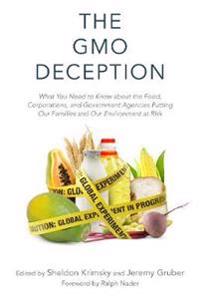Social Theories of Risk (Pocket)
avSheldon Krimsky, Dominic (EDT) Golding, Sheldon Krimsky
ISBN: 9780275943172 - UTGIVEN: 1992-08The social science approach to risk has matured over the past two decades, with distinct paradigms developing in disciplines such as anthropology, economics, geography, psychology, and sociology. Social Theories of Risk traces the intellectual origins and histories of twelve of the established and e[...]
Genetic Justice: DNA Data Banks, Criminal Investigations, and Civil Liberties (Övrig)
avSheldon Krimsky, Tania Simoncelli
ISBN: 9780231145206 - UTGIVEN: 2010-02-01National DNA databanks were initially established to catalogue the identities of violent criminals and sex offenders. However, since the mid-1990s, forensic DNA databanks have in some cases expanded to include people merely arrested, regardless of whether they've been charged or convicted of a crime[...]
Genetic Justice: DNA Data Banks, Criminal Investigations, and Civil Liberties (Övrig)
avSheldon Krimsky, Tania Simoncelli
ISBN: 9780231145213 - UTGIVEN: 2012-04-27National DNA databanks were initially established to catalogue the identities of violent criminals and sex offenders. However, since the mid-1990s, forensic DNA databanks have in some cases expanded to include people merely arrested, regardless of whether they've been charged or convicted of a crime[...]
The Gmo Deception: What You Need to Know about the Food, Corporations, and Government Agencies Putting Our Families and Our Environment a (Inbunden)
avSheldon Krimsky, Jeremy Gruber, Ralph Nader
ISBN: 9781628736601 - UTGIVEN: 2014-06Seventy-five percent of processed foods on supermarket shelves--from soda to soup, crackers to condiments--contain genetically engineered ingredients. The long-term effects of these foods on human health and ecology are still unknown, and public concern has been steadily intensifying.
This new b[...]Genetic Explanations (Inbunden)
avSheldon (EDT) Krimsky, Jeremy (EDT) Gruber, Sheldon (EDT) Krimsky
ISBN: 9780674064461 - UTGIVEN: 2013-02Can genes determine which fifty-year-old will succumb to Alzheimer's, which citizen will turn out on voting day, and which child will be marked for a life of crime? Yes, according to the Internet, a few scientific studies, and some in the biotechnology industry who should know better. Sheldon Krimsk[...]







